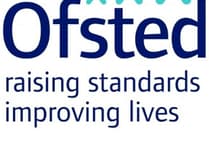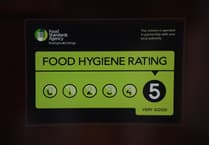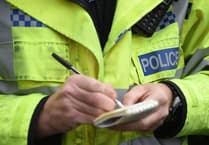2021 is the 11th anniversary of Great British Beef Week, an annual event which highlights British Beef and inspirational local farmers.
The week is a chance to celebrate all the great things British farmers do to make British beef farming one of the most sustainable in the world.
To mark the event, we spoke to Morwenna Bone of Toldavas Farm in Penzance, where she and her family rear North Devon, Hereford and British Blue cattle.
Having been raised on a dairy farm and later marrying a beef farmer, Morwenna now runs the farm’s own shop selling their home reared grass fed beef, vegetables and pasties.
This year’s Great British Beef Week has a focus on environment and sustainability. What are some of the things that you (and other beef producers here in the South West) are doing that you are especially proud of?
British beef farming is amongst the most sustainable in the world and aims to become carbon neutral by 2040. Here in the South West many areas are not suitable for cropping, so are perfect for grazing cattle. We farm 412 acres, of which over 100 acres are not suitable for cropping so it’s great that we are able to use this for grazing. This grassland increases the absorption of carbon from the atmosphere so helps to reduce our environmental impact. The land has been grazed for thousands of years here, really showing that livestock farming is an established part of our history.
We have a high rainfall in the South West which is great for growing grass, too. Britain’s unique climate is suited to livestock with plenty of rain and abundant grass which in turn produces nutritious beef. Our cattle are 95% grass fed and any cereal feed given to the cows is all grown on our farm. We are also looking into growing our own protein for cattle feed. We grow clover mixes to reduce the amount of fertilizer spread on our land.
We have Higher Level Stewardship land where some of our cattle are grazing, this helps to manage environmentally sensitive areas of the farm and increase biodiversity. As well as this, we sell our home-reared grass-fed beef through our farm shop which is butchered at the farm shop, so it is very local! This is our flagship product but we also grow our own vegetables to sell. This all helps to greatly reduce food miles.
Last April at the start of the pandemic we spoke about combining farming, and the shop, with family life. Have the last 12 months changed what you do and how you do it at the St Buryan Farm Shop? Has the surge in interest in local produce that we saw at the start of the first lockdown continued?
We have had an extremely busy year since the start of the pandemic. Richard (my husband) and I have juggled farming, the farm shop and raising our two boys Cadan, 10, and Harvey, seven, which has been difficult at times but we wouldn’t have it any other way – we love feeding the nation! Being key worker children, the boys have continued to attend school during the last lockdown which has made things a little easier.
Both of the boys love growing up on the farm and are interested in the running of the farm shop, they help Richard with the cattle and vegetable growing too. I just need to train them to make pasties!
There has definitely been a huge surge in interest from people to purchase local produce and support small businesses. Consumers are more interested in where their food comes from and how it is produced, and we have seen this interest continue throughout the year. With the lockdowns and reduced social contact, our customers are glad to see friendly faces at the farm shop and have a bit of a chat to catch up. We may be the only ones they speak to in a day or a week!
What would you say to anyone whose only experience of beef might be burgers or mince and who might be a bit cautious about buying beef – either because they feel it might be expensive, or because they might not be sure how to cook it?
You don’t need to spend lots of money to get the great flavour of British beef. The more economical cuts often have more flavour, but they may need to be cooked a little longer. I’ve started making ready meals from the cheaper cuts, with steak and ale pie being one of the favourites. If you are struggling for inspiration, ask your local butcher or farm shop staff for a good recipe they’ve tried, they will always be happy to help! By supporting British farmers and by buying British beef, you are supporting an innovative industry.
How can customers know they are supporting local / British farmers when they go shopping?
The best thing to do is ask where the meat comes from. Shopping in smaller butchers and farm shops means you’ll get to know the staff and you can ask them anything, from cooking advice, to exactly where the meat has come from. In supermarkets, look for the red tractor logo so you know your food is British.




